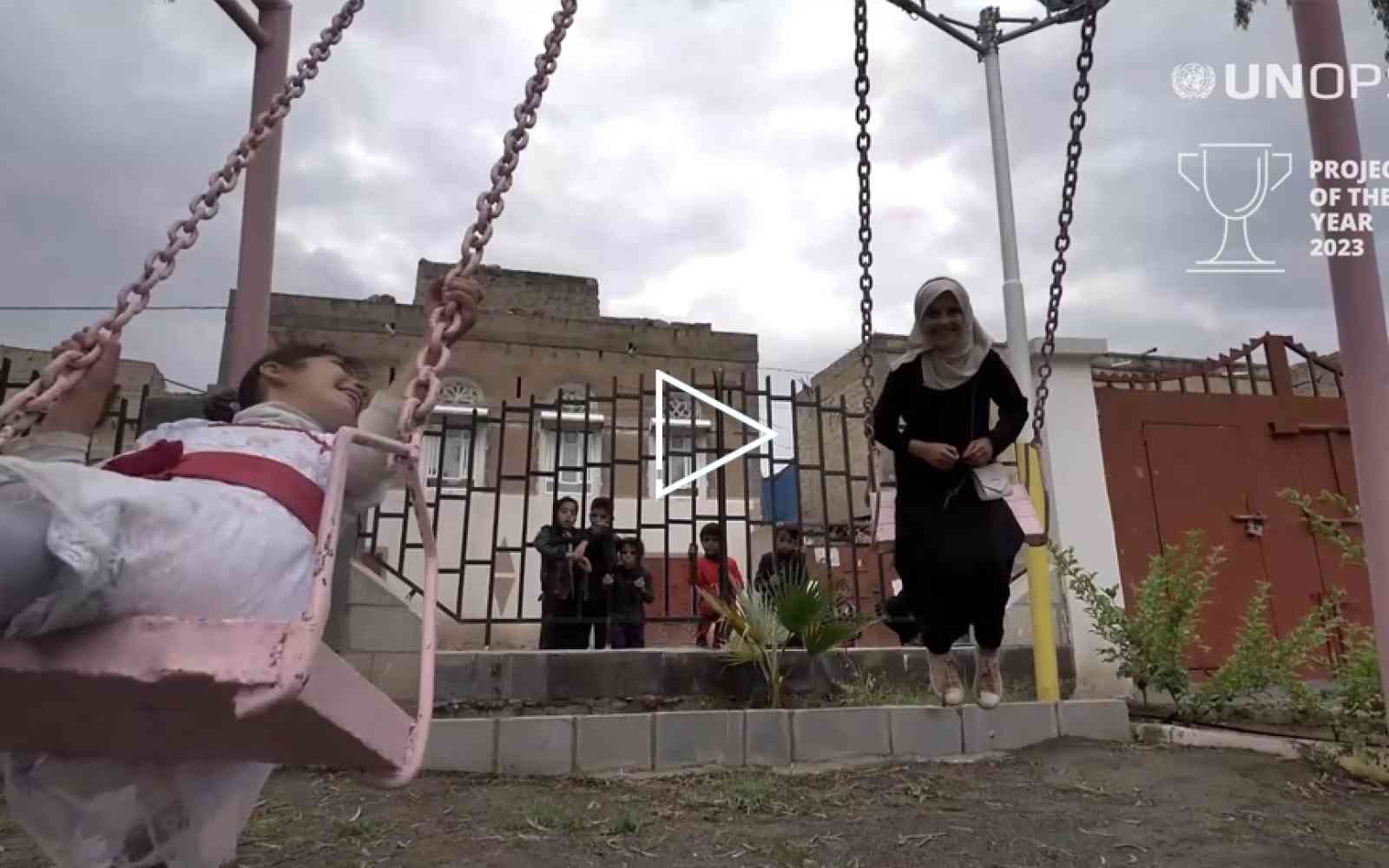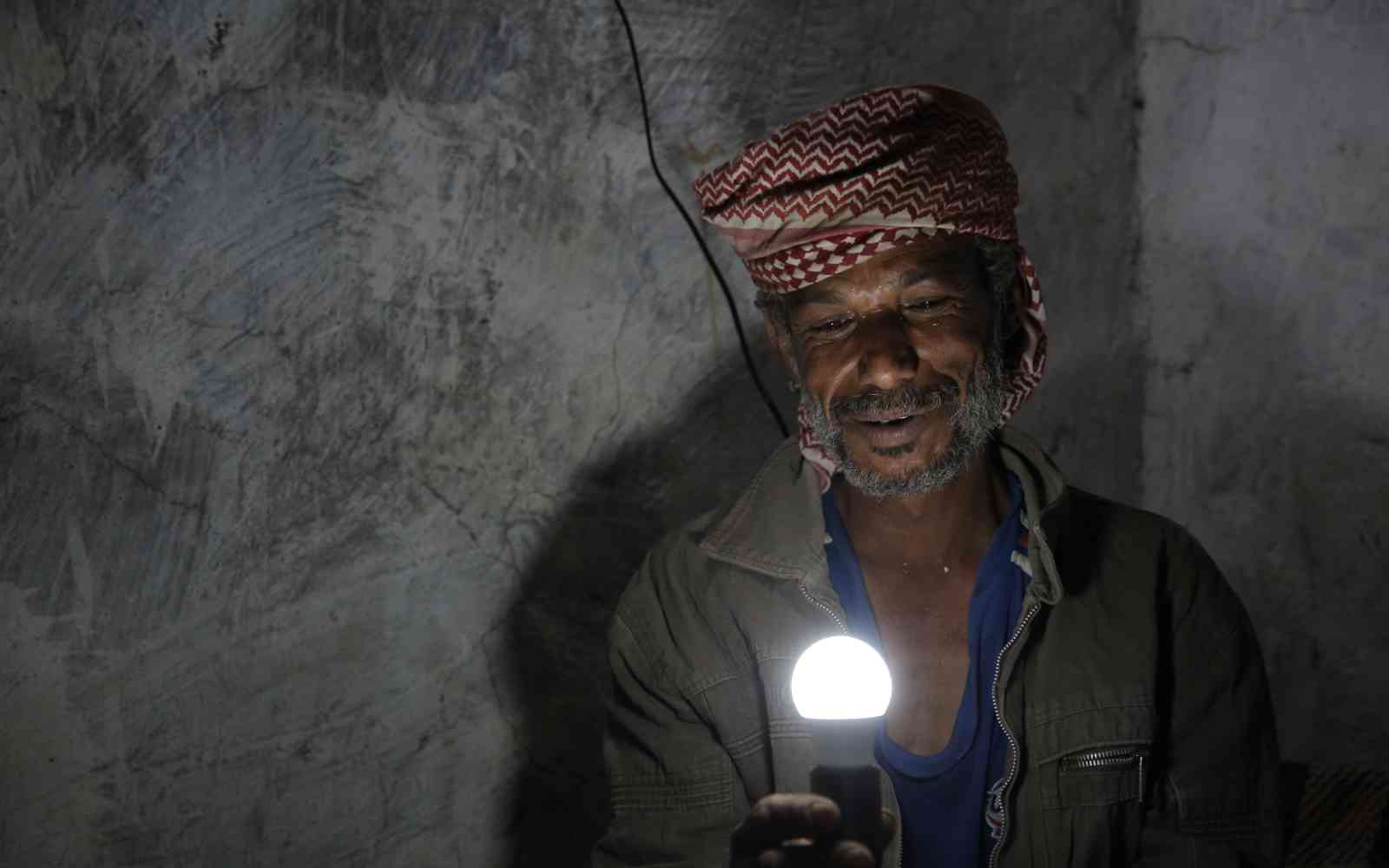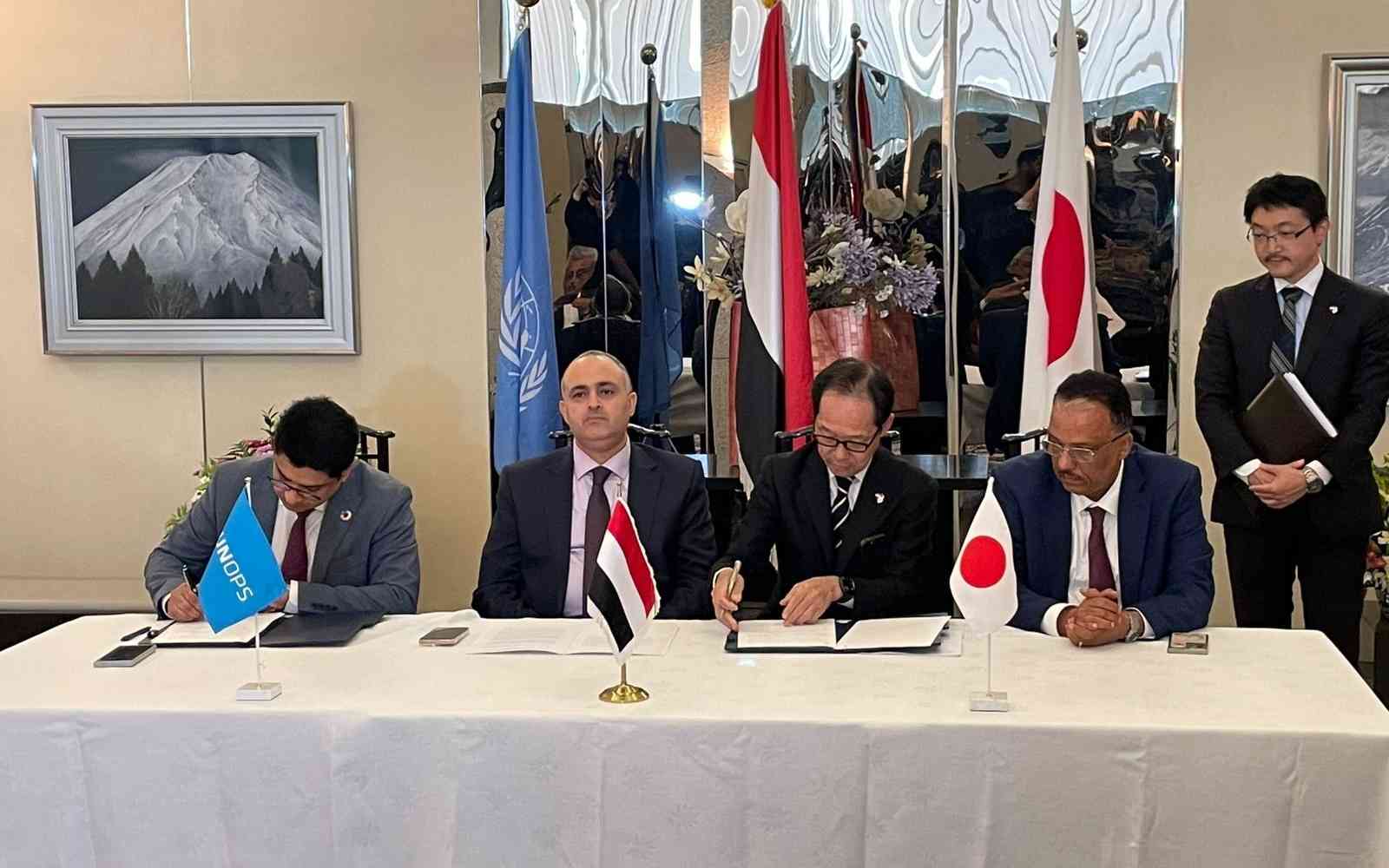The United Nations Office for Project Services (UNOPS)
Continuing to improve access to essential water and sanitation services in Yemen
UNOPS, with funding from the World Bank’s International Development Association, is providing vital water and sanitation services to more than 2.5 million Yemenis.
This article was originally published 3 August 2022 and has been updated to reflect recent developments.
20 June 2025
UNOPS installed solar panels and pumps at eight wells in Al-Mahrah governorate, providing a reliable, clean water supply to 56,500 residents.
In total, UNOPS has installed 29 solar units with a total capacity of 2,465 KWH to power 50 water facilities, wastewater treatment plants, and sanitation pump facilities across the country.
To date, around 680,000 people have been provided with access to improved sanitation services, including 348,000 women and girls.
20 May 2025
In partnership with Yemen's Public Works Project, UNOPS and the World Bank are constructing eight rainwater harvesting tanks across Yemen. As part of this, the installation of a 1,000 cubic metre tank in Wisab Al-Safil village is now complete and serves 1,800 people across seven neighbouring villages.
To date, almost 890,000 people across the country have already gained access to clean water sources.
31 December 2024
UNOPS received an additional $28.4 million from the World Bank for the Yemen Emergency Human Capital Project. The total funds of $112 million budgeted for WASH, which includes the original financing as well as three additional funds, will help UNOPS continue to restore access to improved water and sanitation services, as well as help strengthen the capacities of the local councils in Yemen.
This third additional funding brings the total funding for the Yemen Emergency Human Capital Project to $592 million.
The project is implemented by UNICEF, the World Health Organization and UNOPS, in collaboration with local stakeholders. The new funding builds on activities supported by the Yemen Emergency Human Capital Project, which began in 2021.
With $112 million from the overall funding, UNOPS is providing vital water and sanitation services to more than 2.5 million Yemenis. Following years of armed conflict, around 17.1 million people currently lack access to safe water and sanitation across the country.
Increasing access to quality water supply and functional sanitation systems is critical to improving the lives of Yemeni people across the country.
In Yemen, UNOPS is working with the World Bank to improve access to clean water by constructing rainwater harvesting systems.
“Thanks to the World Bank's sustained support to Yemen and its confidence in UNOPS, the additional financing to this project will contribute to the collective efforts of UN partners to prevent, control and respond to key health challenges including outbreaks of communicable diseases," added Mr. Akram.
UNOPS will rehabilitate water and sanitation networks, waste water pump stations and water wellfields. UNOPS will also help secure water and sanitation facilities with sustainable energy sources by installing photovoltaic solar power units. Equipment and supplies will also be provided to three laboratories to enhance the monitoring of quality drinking water.
“The project will strengthen access to critical health, nutrition, water and sanitation services for millions of vulnerable Yemenis,” said Tania Meyer, World Bank Country Manager for Yemen.
“It is a key feature of the World Bank’s strategy to continuously invest in Yemen’s human capital during the conflict and safeguard the future of coming generations,” she added.















